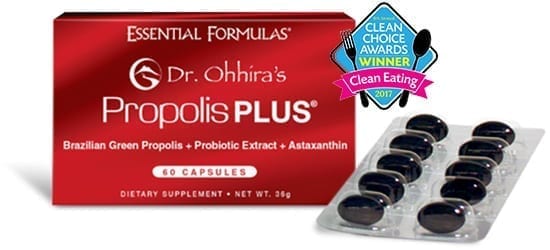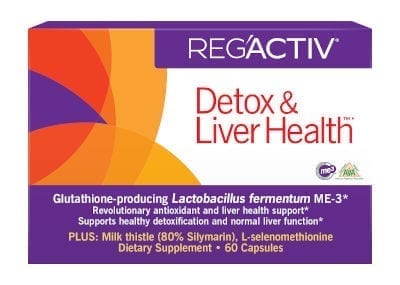By Ross Pelton, RPh, PhD, CCN
Scientific Director, Essential Formulas
We love our pets. Approximately 85 million (67%) of American families own a pet. Dogs and cats are the most common pets, with 53% of American households owning a dog and 35.7% of households own a cat.i
Animals, like humans, have trillions of microbes living in their gastrointestinal tract, which are collectively referred to as the gut microbiome. Although microbiome research on household pets is limited, there are some basic similarities between the microbiome of cats, dogs, and humans.ii
Microbiome analysis has shown that the primary classes of probiotic bacteria in the intestinal tract of dogs and cats are similar to those that reside in the human gut microbiome.iii Studies have shown that pets and their owners often share many of the same intestinal bacteria as their family pets.iv
While many things can upset your pet’s microbiome, such as stress, and a poor diet, the most common and most severe disruption and destruction to the microbiome is a course of antibiotics. Common conditions treated with antibiotics include infections in the eyes, ears, skin, and mouth. Antibiotics are also frequently prescribed to treat cats and dogs suffering from inflammatory bowel disease (IBD).v,vi
Antibiotics are frequently necessary; however, the overprescribing of antibiotics has become a serious global health problem. The World Health Organization (WFO) has reported that antibiotic-resistant “superbug” infections are among the top global health threats facing humanity.viiStudies have reported that physicians frequently prescribe unnecessary antibiotics, and it has also been reported that overprescribing antibiotics is relatively common at veterinary clinics.viii
-
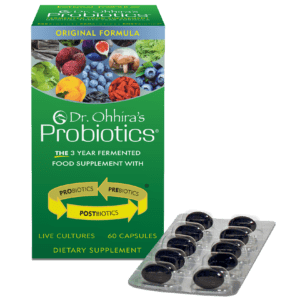 Dr. Ohhira’s® Probiotic Supplements$13.95 – $89.95
Dr. Ohhira’s® Probiotic Supplements$13.95 – $89.95 -
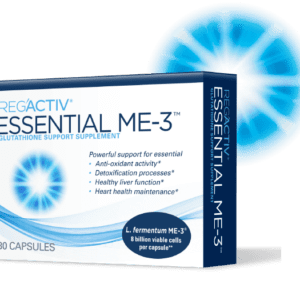 Reg´Activ Essential ME-3$39.95
Reg´Activ Essential ME-3$39.95 -
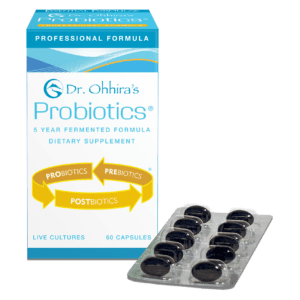 Dr. Ohhira’s® Probiotics Professional Formula$39.95 – $129.65
Dr. Ohhira’s® Probiotics Professional Formula$39.95 – $129.65
Dysbiosis in Cats and Dogs
Like humans, when the microbiome in cats or dogs is unbalanced, a condition is known as dysbiosis occurs, which results in symptoms such as gas, bloating, diarrhea and/or constipation, excess thirst, and weight loss. Dysbiosis can also cause intestinal permeability or ‘leaky gut, leading to a wide range of other diseases.ix
Probiotics for Your Pet
There are only a few published studies investigating probiotics in dogs and even fewer in cats. Also, very little research has been conducted regarding what strains and dosages are appropriate for various health problems.
However, at Essential Formulas, we understand that the primary issue IS NOT what strain, what dosage, or how many CFUs. We know that the health benefits of probiotics are due to postbiotic metabolites. However, the production of postbiotic metabolites takes time and depends on many factors such as the strains of bacteria, dosage, diet, and a host of other lifestyle and environmental factors.
An article published in Frontiers in Veterinary Science made the following statement.
“Although probiotics are typically unable to colonize the gut, the metabolites they produce during their transit through the GI tract can ameliorate clinical signs and modify microbiome composition.”x
This statement emphasizes that it is the postbiotic metabolites that bring about improvements in symptoms and regulate health. Many of the postbiotic metabolites in the microbiome of cats and dogs are the same as those found in human microbiomes, such as short short-chain fatty acids, vitamins, antimicrobial peptides (AMPs) and others.xi
Dr. Ohhira’s Probiotics for Your Pet
We now understand how important a healthy gut microbiome is for human health and the health of animals. I urge pet owners to think about the following essential points.
- Antibiotics: If your pet has had to take a round of antibiotics, consider giving them Dr. Ohhira’s Probiotics for a while to help reestablish a healthy microbiome.
- GI Distress: If your pet is exhibiting gastrointestinal distress such as diarrhea, constipation, gas, or bloating, consider giving Dr. Ohhira’s Probiotics for a while.
- Stress: Stress has adverse effects on the microbiome, which can also suppress the immune system (for example, you put your dog in a kennel while you are gone on your 2-week vacation).
- Maintain Good Health: Take proactive steps to help maintain a healthy microbiome for your pet(s) by giving one capsule of Dr. Ohhira’s Probiotics daily.
TESTIMONIAL: The following testimonial was sent to us by a customer who began giving her dog Dr. Ohhira’s Probiotics, along with a photo of the results.
Hello Essential Formulas,
I am writing to thank you and inform you about how Dr. Ohhira’s Probiotics solved a frustrating problem for us with our dog Annie.
Annie is a breed named Bichon Frise, and she had problems with a condition called “Tear Staining,” which causes reddish-brown eye discharge that stained the hair below her eyes. This is a fairly common condition in dogs of this breed. It was very noticeable and unattractive as Annie is white. I researched various options to deal with the problem and discovered that some of the dog and cat tear stain products on the market at that time contained the antibiotic tylosin tartrate. This concerned me as I try to avoid antibiotics whenever possible.
Since I know that antibiotics kill good bacteria and bad, I decided to try Dr. Ohhira’s Probiotics and have been delighted as they cleared up the tear staining and pretty quickly.It’s been an excellent, safe solution that is actually good for Annie. I just put one capsule in her food bowl every morning and have had no further issues.
The dog’s picture with the red staining is not our dog, but an example of how unattractive the staining can be. The photo on the right is an actual photo of our dog Annie after her face cleared up. So, thanks to Dr. Ohhira’s Probiotics, our Annie no longer has ugly red stains on her face.
Emanuelle Gomez, LCSW, Ashland, OR






